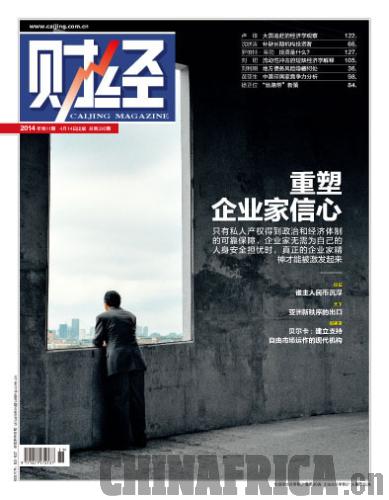| 
HEALTH CARE REFORM
Oriental Outlook
April 17, 2014
Tension between medical workers and patients has been escalating in recent years, with successive cases of violent incidents in hospitals. Oriental Outlook in this issue looks at the urgency behind measures to reform the health care system.
In China, both patients and medical workers complain of the current medical care conditions. For many patients, it is difficult to obtain satisfactory service in prestigious hospitals that are mostly located in large cities and the treatment is often unaffordable. For doctors, they have to bear heavy work stress to give treatment to a long line of patients every day. Moreover, doctor has become a dangerous occupation because of intensified conflicts between doctors and disgruntled patients or their family members, with some doctors even wounded or killed.
At present, a large portion of doctorsí income relies on commission on drug sales. The salary system has underestimated the value of doctors. Furthermore, the registry system for certified doctors hinders the free flow of doctors between different hospitals.
Therefore, upcoming medical care reform must resolve these problems and free doctors from the state of heavy work stress and low salary. Meanwhile, patientsí rights and interests should also be protected.

REINFORCE ENTREPRENEURIAL CONFIDENCE
Caijing Magazine
April 14, 2014
Entrepreneurs always play an important role in driving the economic prosperity of a country. Outstanding entrepreneurs have emerged in large numbers in China since the countryís reform and opening up in the late 1970s.
Today, more and more people have realized that Chinaís development pattern dominated by giant state-owned enterprises (SOEs) and driven by governmental investments has come to an end. What economic growth needs is the pioneering spirit of entrepreneurs. However, only when private property rights are completely protected by laws, can the spirit of entrepreneurs work.
A robust economic system should protect the free development of private properties. But the private sector is still weak in China. In the last 10 years, private enterprises have been squeezed out of many businesses by SOEs. The rapid strides of SOEs has caused many problems and led to the rigid development pattern.
China is preparing to launch a new round of reform. It is hoped that the comprehensive reform may help establish an inclusive system in which all parties of the society, including numerous private entrepreneurs, have legal rights and clarified approaches to grow their businesses. It is the only way to make China a thriving and prosperous country.

PRODUCTION OVERCAPACITY
Caixin
March 31, 2014
Production overcapacity is now a much discussed topic in China. Caixin looks at how capacity substitution might be a countermeasure against overcapacity.
Capacity substitution doesnít simply mean shutting down a number of factories. In the steel industry, for instance, it means turning part of an areaís steel production into other production by turning some steel factories into factories that produce other products.
In this way, China can reduce the overcapacity of steel without causing a large number of bankruptcies or unemployment. Neither will the government see a sharp drop in tax revenues. Also, the big resistance derived from the fear of shutting down the steel factories can be resolved.
By introducing private capital in this sector, the existing production capacity can be optimized through full market competition. Besides, with proper government supervision, environmental protection, energy consumption and security will all be strengthened during the process.
NO VIOLENT PROTEST
Qilu Evening News
April 1, 2014
On the evening of March 30, a thunderstorm hit the airport of Shenzhen in south Chinaís Guangdong Province, leading to large-scale flight delays and leaving passengers stranded in the airport for a whole night. Some passengers lashed out at airport staff for its mismanagement. They had a quarrel with the staff and even smashed a service desk.
In recent years, similar conflicts have often broke out between passengers and airports due to flight cancellations or delays. Some passengers resort to violence and demand compensation from airline carriers or airports. In fact, this kind of behavior cannot help protect passengersí legal rights but damages public order in airports and threatens the safety of both passengers and airport staff.
Affected passengers might have reason to get angry. Due to some unequal terms and clauses, passengers of delayed flights can find it difficult to claim compensation from airlines. Moreover, some domestic airlines and airports ignore passenger complaints and fail to improve their service. Passengers hope their extreme behaviors can arouse wider public attention.
It is social progress that citizens protect their legal rights. But the violent behaviors could harm public security and have serious consequences. Violence itself goes beyond the bottom line of law. Passengers need to calm down and claim their rights in a peaceful and rational way. |